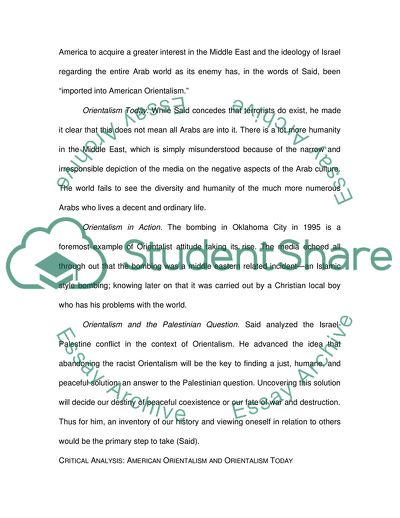Cite this document
(Orientalism by Edward Said Movie Review Example | Topics and Well Written Essays - 1500 words, n.d.)
Orientalism by Edward Said Movie Review Example | Topics and Well Written Essays - 1500 words. https://studentshare.org/visual-arts-film-studies/1729825-oriantalism-by-esward-saeed
Orientalism by Edward Said Movie Review Example | Topics and Well Written Essays - 1500 words. https://studentshare.org/visual-arts-film-studies/1729825-oriantalism-by-esward-saeed
(Orientalism by Edward Said Movie Review Example | Topics and Well Written Essays - 1500 Words)
Orientalism by Edward Said Movie Review Example | Topics and Well Written Essays - 1500 Words. https://studentshare.org/visual-arts-film-studies/1729825-oriantalism-by-esward-saeed.
Orientalism by Edward Said Movie Review Example | Topics and Well Written Essays - 1500 Words. https://studentshare.org/visual-arts-film-studies/1729825-oriantalism-by-esward-saeed.
“Orientalism by Edward Said Movie Review Example | Topics and Well Written Essays - 1500 Words”. https://studentshare.org/visual-arts-film-studies/1729825-oriantalism-by-esward-saeed.


